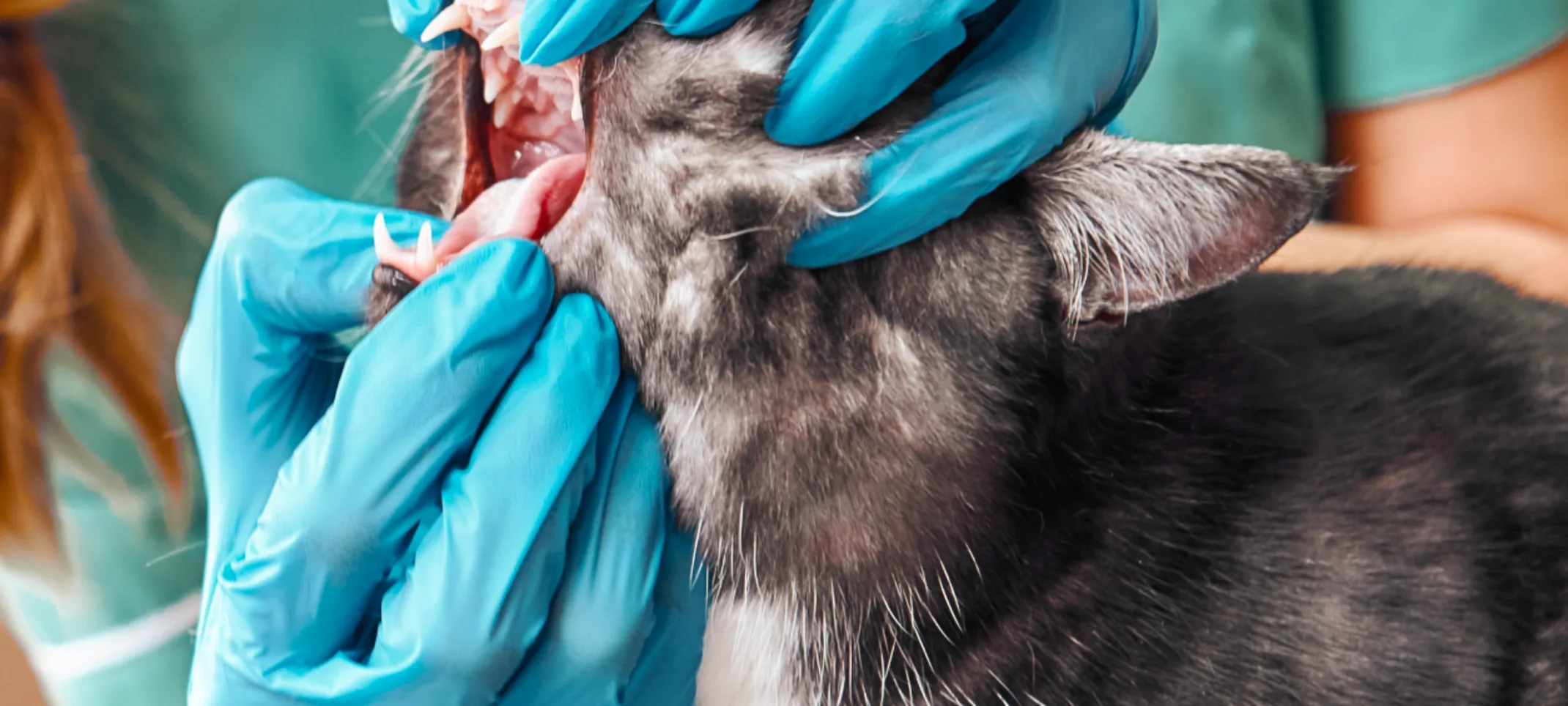I-20 Animal Medical Center
Feline Stomatitis Treatments

Feline stomatitis is a frustrating and prevalent condition in cats. Although there is no known single cause of this condition, the outcome is painful inflammation of the oral cavity and gingival tissue. The inflammation is a result of immune cells infiltrating the tissue. Treatment for feline stomatitis is often limited and may consist of steroids, antibiotics, anti-inflammatories and/or surgery. Here are some common questions we hear from pet owners at I-20 Animal Medical Center regarding feline stomatitis.
How do I know if my cat has feline stomatitis?
Feline stomatitis shows up in the mouth as lesions or sores—cats can have many or just one or two. They seem to be very painful (like human canker sores), and cats will often just pick at their food or not eat at all if they have them. Veterinarians can spot these lesions during exams and can suggest treatment from there.
What are the symptoms of feline stomatitis?
Signs of feline stomatitis depend on the severity of the lesions, where the lesions are located and how many lesions are present. Stomatitis can show up anywhere in your cat’s mouth. Affected areas become red, swollen and ulcerated. Other symptoms include anorexia, weight loss, bad breath, difficulty eating, excessive salivation, gums that bleed easily and reluctance to groom.
So what treatment options are available for feline stomatitis?
Feline stomatitis is a difficult disease to treat. First, we don’t know how or why it occurs. Secondly, treatment protocols change continually because nothing works 100 percent of the time (or even 75 percent of the time, for that matter). Since we don’t have the answer as to what triggers these lesions, treatment can often be hit or miss. It can also entail some very aggressive options as these tend to work best. Steroids, antibiotics and certain rinses are currently the most common treatments.
One thing is for certain: gum disease and resorptive lesions have a profound negative impact on cats with stomatitis. At I-20 Animal Medical Center, we have found that extracting all the teeth behind the canines greatly reduces these lesions. That may sound quite aggressive, but we have seen many, many cases of cats that won’t eat and seem to always be lethargic that then act like kittens again once their teeth are gone and the lesions clear up. It makes sense that they would prefer no teeth and no pain over painful, open sores throughout their mouths!
Doing nothing is not an option when a cat has stomatitis. You have to remember that these lesions are very painful and dramatically affect your cat’s health and well-being. Steroids and topical applications can often make a huge difference in your cat’s quality of life. These treatments are easy and relatively cheap, and only when we have no other options do we look at more aggressive treatments.
Schedule pet dental care at I-20 Animal Medical Center by calling 817.478.9238.
